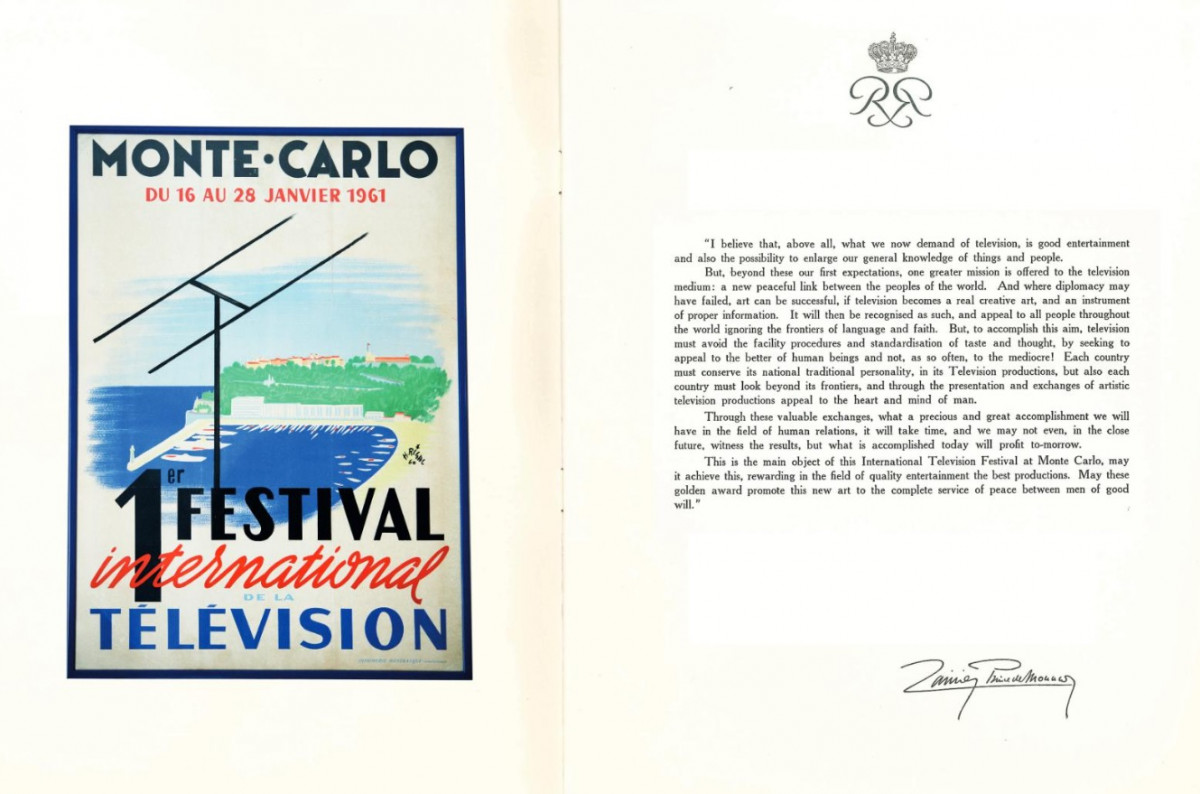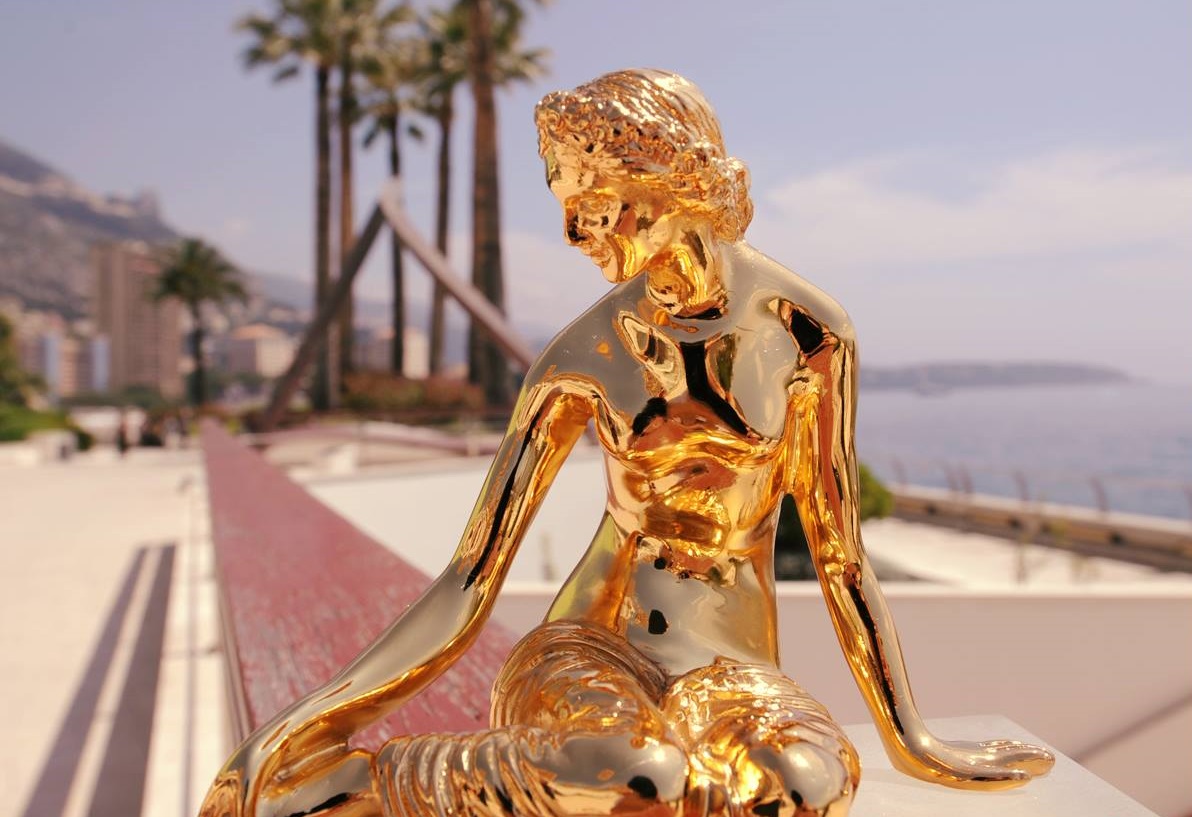The Monte-Carlo Television Festival came about when TV was still in its infancy, but the forward-thinking Prince Rainier III had a vision of what this medium could offer and how it would grow to inform and entertain the world.
The year was 1960, the dawn of a new decade and, as we know in retrospect, also a new era. Television was only just finding its way into households and though content was limited, as was reach, Prince Rainier III saw it as the future.
By early 1961, his concept was coming together and later that year, the first ever Monte-Carlo Television Festival sprang to life.
IN THE BEGINNING
Monaco was already well-known as a glamourous place. The Prince’s marriage to screen star Grace Kelly had brought a fashionable and famous coterie to the Principality, and its long history as a wintering spot for the rich was expanding beyond a single season.
The inaugural Monte-Carlo Television Festival saw stars of the age out in full force to support the event. The nights were dazzling affairs and the gala event was broadcast by Eurovision live on Télé Monte-Carlo to people in Belgium and Spain, and later in France and Switzerland.
Maria Callas, Jane Fonda, Gene Kelly, Roberto Rossellini, Claudia Cardinale, Sophia Loren, Gina Lollobrigida and Jean Seberg were amongst the attendees, and the legendary Marlene Dietrich even sang.

Yul Brenner was honoured at that year’s ceremony, as was Sir Laurence Olivier, who won a prize for his performance in the television film The Moon and The Sixpence.
AND THEN…
By 1964, the Festival had become a sensation. The event introduced simultaneous translation, showed the future with TV programmes in colour and displayed technical feats of France’s SECAM system, allowing for live broadcasts from Paris.
The Festival quickly became a can’t-miss for the fast-growing television world and a total of 65 programmes were in the running in 1966. It was then that the event was opened up to the public, allowing viewers to vote for their favourites, which culminated in the Special Audience Award. It was also the first year that colour programming competed alongside black and white.
AN ESTABLISHED EVENT
By the 1970s, television was firmly established as a focal point for family home life, social debate and as a primary source of entertainment. Racial equality, nature-related matters and feminist ideals were being played out on the small screen and this was reflected in the Festival’s offerings.
This decade was also when the Festival added an international audio-visual symposium to the roster, open to those on the technical side of TV as well as researchers and public and private organisations.
In the 1980s, with the advent of cable television and a sharp rise in programming, the Festival created a marketplace, attracting distributors, producers and top executives to buy and sell to bigger audiences.
In 1989, Prince Albert II took over the Presidency of the Monte-Carlo Television Festival and brought with him a new and fresh approach.
The following decades saw a series of developments within the industry, with technology and changing attitudes at the forefront, and the Festival has kept up with the times. From championing new channels and bold screenwriting to trends in reality television and streaming, it has remained not just relevant, but regarded.
This year marks the 62nd Monte-Carlo Television Festival and, from 16th to 20th June, participants can expect all the glamour of the early days with distinctly modern touches. Panel discussions, signing sessions, conferences, screenings and world premieres are open to the public, making the event inclusive and accessible. Additionally, it will be streamed and covered on social media as well as having its own dedicated app.
Time has marched on since 1961, but the Monte-Carlo Television Festival has definitely marched along with it.
Read more:
Monte-Carlo Television Festival: more than a red carpet event
Sign up for the Monaco Life newsletter. For the latest news, follow us on Facebook, Twitter, and Instagram.
